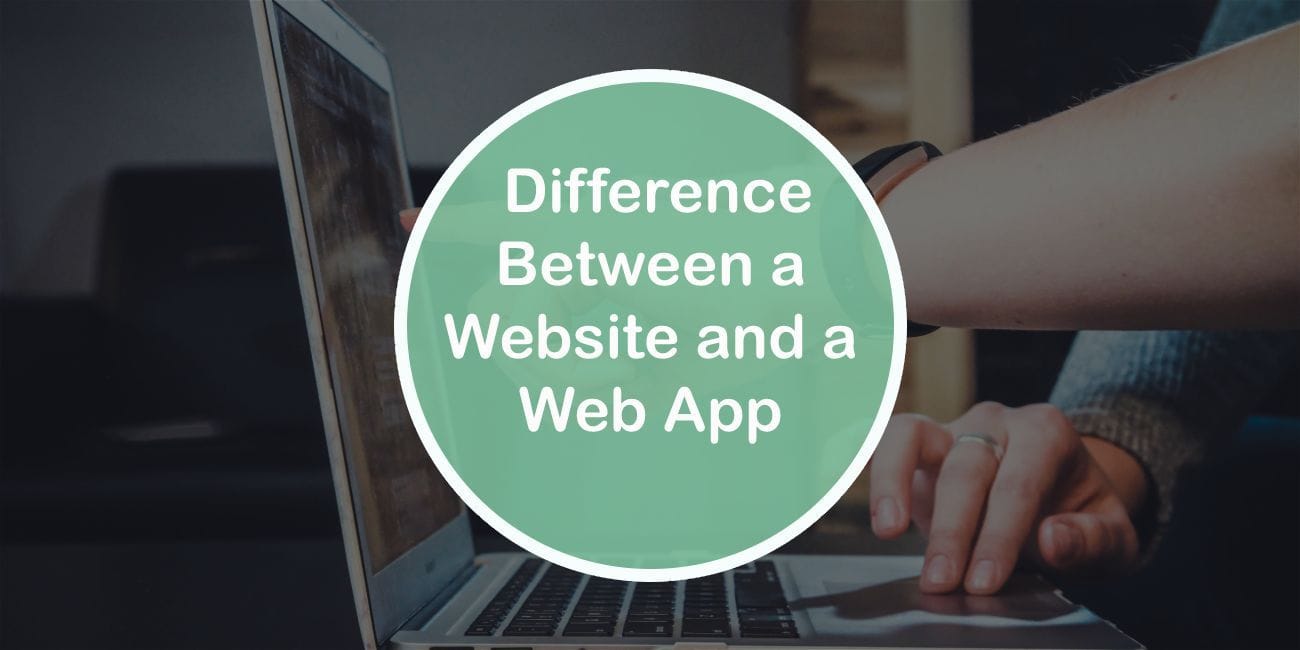Browsing the internet, you might have seen the terms “web app” and “website” used interchangeably. After all, there often seems to be little difference between the two, so why bother using separate terms?
While an end-user might have problems distinguishing between a #web application and a #website, the two are actually fundamentally different in the way they’re developed and how they work. Share on XDepending on your needs, you might benefit more from either one. That’s why it’s important to know the difference between the two – and that’s also exactly what we’re going to be explaining today.
What is a website?
Starting off with the website, let’s stop and ask ourselves – what really constitutes what we call “a website”?
In technical terms, a website is most often a group of related web pages, brought together under a single domain. To access a website, it needs to be connected to a server, which itself must be connected to the Internet. Networks can also be accessed on private networks – you can often see such websites on college intranets.
Websites most often contain static content, meaning it does not update dynamically based on user input. Most web developers create their pages using HTML, CSS, and JavaScript, but a simple website can easily be created in HTML alone.
Nowadays, complex websites offer a degree of interactivity – users can not only see the content but also affect it. This used to be exclusive to web applications, which only makes distinguishing between the two harder and harder.
Still, there are crucial distinctions between the two – let’s take a look at web apps now.
What are web applications?
Web applications are pieces of software specifically designed to be interacted with by the end-user. While they often also contain static content, most of their functionality should be dynamic. Even though websites might feature some interactive elements, they are primarily informative. Facebook, YouTube, and Gmail are all dynamic web apps, even though they’re often described as websites by users.
The most popular technology for building web apps nowadays is JavaScript, and you need different experts to build different parts of your app, e.g. hire Node.js developers for building the backend of your app, and React developers for the frontend. Most dev shops will be happy to advise and help you choose the best-fitting technology for your particular case. You can also look at who’s offering VueJS development services. This is another technology that you can use.
Web apps are also very customizable and can be tailored to perform an entire array of tasks. They are much more complex than simple websites, which even total beginners could assemble with minimal research, and usually require a dedicated team of software developers, who will take care of both frontend and backend.
Web app coding might look similar to websites on the surface level, as the frontend in both can be created with HTML, CSS, and JavaScript. The backend, though, is often made using software stacks like MEAN or LAMP.
Do I need a website or do I need a web app?
If all you need to do is display information to your users, there is probably no need to build a whole web app – static content can be easily created on websites, and developing a page is a much simpler and cheaper process than building a whole new software. Websites can be effectively used to display your products and services and can act as your company’s online business card.
However, if you need something specifically designed for end-user interaction that allows the user to manipulate data, web applications will definitely be better suited to your needs.
They also offer a much higher degree of interaction, mainly because of their complex functionality. Take into consideration that web software is much more difficult to design and code, and will definitely require more time and resources than a website would.
Besides a website or a web app, you can also consider native app development. DIY tools like AppMySite enable you to create a mobile app without coding and launch it on Google Play and the App Store. Native apps are faster, powerful, and built specifically for mobile compatibility.
When considering your options, find the solution most relevant to your or your company’s needs. If you’re not sure, it might be worth it to consult with experienced web software developers and establish the most effective course of action.




